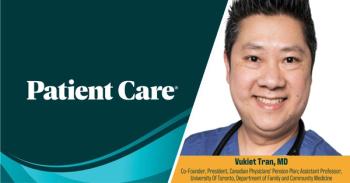
AAAAI: Kids with Egg Allergy Take a Powder
SAN DIEGO -- Children with allergies to eggs can lose their sensitivity with the help of a little powdered egg and an oral desensitization regimen, according to Japanese researchers.
SAN DIEGO -- Children with allergies to eggs can lose their sensitivity with the help of a little powdered egg and an oral desensitization regimen, according to Japanese researchers.
Eleven of 13 allergic children were able to tolerate up to 4 g of powdered egg, about one-quarter of a medium-sized hen's egg, reported Masuyaki Akashi, M.D, of the National Center for Child Health and Development in Tokyo, and colleagues.
In their study "the reduced risk of critical allergic reaction with accidental ingestion of egg was observed in all patients," Dr. Akashi reported at the American Academy of Allergy, Asthma, & Immunology meeting here.
Although they typically recommend that young patients with egg allergies be kept on egg-avoidance diets until they reach school age, by which time the majority of children have lost their sensitivity, there are some children who never seem to develop tolerance, the authors said.
On the basis of clinical experience with oral desensitization therapy in the U.S. and Europe, the authors conducted a study to evaluate the efficacy and safety of the technique with the 13 egg-allergic children.
The seven boys and six girls had a mean age of 5.5 + 1.5 years (range four to eight). Two of the children had bronchial asthma alone, two had atopic dermatitis alone, and the remaining nine had both.
Powdered egg, starting at a dose of 0.1 mg, was introduced gradually into the diets, and was increased every three of four days, in increasing small increments, over three to six months.
Whenever an objective allergic reaction occurred, the previous dose was given for an additional week, and the child was then started on antihistamine.
The main outcomes measures were tolerance to 4 g of powdered egg, and egg-white specific immunoglobulin E (IgE) and immunoglobulin G4 (IgG4) levels in serum.
At the end of the study, 11 of the 13 children had developed tolerance to the full 4 g dose of powdered egg. One of the remaining two children could ingest up to 0.2 g of egg, and the other up to 2.4 g at six months.
All but one of the patients had at least some type of allergic reaction during the therapy, with major adverse events including abdominal pain, vomiting, and oral allergy syndrome, but there were no anaphylactic reactions.
"We conclude that our oral desensitization therapy could induce tolerance for 11 of 13 children with egg allergy safely," Dr. Akashi said.
Dr. Akashi's co-author, Yukihiro Ohya, M.D., director of the allergy division at Japan's National Center for Child Health and Development, said that the lack of anaphylactic reactions and the cautious increase in doses gave them confidence that the oral desensitization regimen could be performed safely at home under close supervision by a qualified physician.
Newsletter
Enhance your clinical practice with the Patient Care newsletter, offering the latest evidence-based guidelines, diagnostic insights, and treatment strategies for primary care physicians.

































































































































